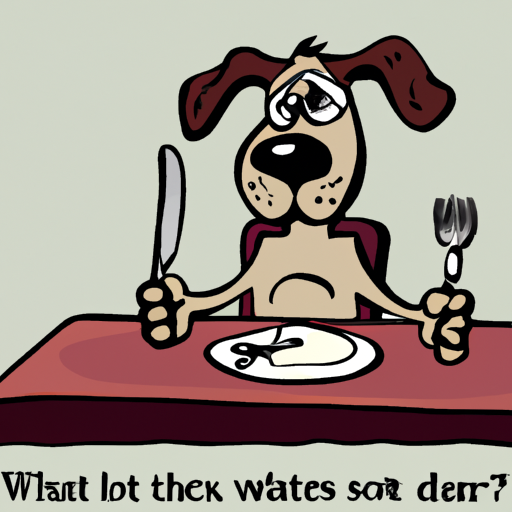Understanding the Canine Anatomy
Firstly, let’s delve into the details of your dog’s anatomy. Unlike us humans, dogs have a different set of teeth. Their teeth are primarily designed for tearing and crushing, not for grinding food like ours. As a result, they don’t have the physical capability to chew their food in the same way we do.
Consider this – you’ve got:
- 32 teeth for diverse functions like biting, tearing, and grinding.
- Your pet dog? They’ve got around 42 teeth mostly designed for ripping and tearing their food.
This significant difference in dental makeup is why your dog doesn’t chew their food like you do.
The Evolutionary Aspect
Now, let’s talk about evolution. Dogs are descendants of wolves – wild creatures who hunted for their food. In the wild, it’s eat or be eaten. There isn’t time to sit down and chew food leisurely. This means that dogs have evolved to eat quickly, bolting down their food without much chewing.
The Role of Dog Food
Dog food, especially kibble, is designed to be easily digestible. This means even if your dog doesn’t chew it thoroughly, they can still digest it without too many issues.
The design of common dog foods:
| Food Type | Design |
|---|---|
| Kibble | Small, easily swallowed |
| Wet Food | Soft, no need for chewing |
| Raw Diet | Mimics natural, wild diet |
However, this doesn’t mean that chewing is pointless. Chewing can help to clean your dog’s teeth and keep their gums healthy.
The Importance of Slow Eating
While dogs don’t need to chew their food as thoroughly as humans, it’s still important for them to eat slowly. Eating too quickly can lead to health problems like choking, gastric dilatation-volvulus (GDV), and obesity.
Here are some ways to encourage slower eating:
- Use a slow feeder bowl.
- Spread their food out on a flat surface.
- Make mealtime a training time.
How to Encourage Chewing
While your dog may not chew their food naturally, there are ways to encourage this behavior. Providing chew toys or dental chews can help. Chewing not only promotes dental health but also provides mental stimulation for your dog.
- Chew toys: These are designed to withstand your dog’s strong jaws and encourage chewing.
- Dental chews: These are edible and often come with added benefits like breath-freshening or tartar control.
FAQs
Why doesn’t my dog chew his kibble?
Dogs don’t have the same need to chew their food as humans due to their dental and digestive systems. They’re designed to tear and swallow rather than grind and chew.
Is it bad if my dog doesn’t chew his food?
It can be if your dog is eating too quickly. This can lead to issues like choking, GDV, or obesity.
How can I get my dog to chew his food more?
You can encourage chewing behavior with chew toys or dental chews. Also, feeding larger kibble or using a slow feeder bowl can help slow down their eating.



